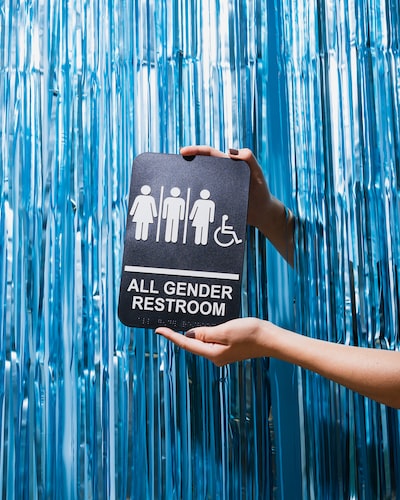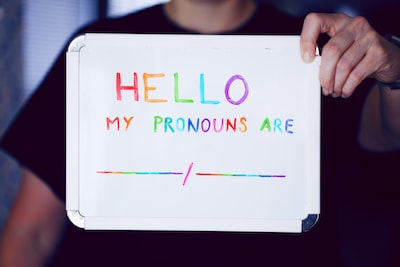Gender inequality is an issue that has persisted across geographies, cultures, and time. It refers to the unequal treatment of individuals based on their gender, which can manifest in a range of areas from education and employment to health care and personal life choices. In this post, we will delve into the root causes of gender inequality and explore its consequences for individuals and society as a whole. We will also discuss actionable steps that you can take today towards reducing gender inequality, such as promoting education and awareness, advocating for equal rights, and supporting women empowerment initiatives. Join us in this critical conversation about creating a more equitable future for all genders.
Understanding Gender Inequality
Gender inequality continues to persist in various aspects of society, representing a fundamental violation of human rights. This form of discrimination hinders progress towards achieving gender equality and poses significant obstacles to sustainable development. Eliminating gender inequality, including the elimination of discrimination, necessitates collective efforts from individuals, organizations, and governments. By addressing reproductive health, ensuring women’s rights, and combating forms of violence and discrimination, we can strive towards a more equitable and inclusive society. The COVID-19 pandemic has further exposed the existing disparities, highlighting the urgency of addressing gender inequality on a global scale.
Defining the Term
Gender inequality refers to the unequal treatment based on gender, including issues such as female infanticide. It encompasses disparities in opportunities, rights, and resources and affects both men and women. This perpetuates harmful gender norms and stereotypes, hindering social progress. Addressing gender inequality is crucial for promoting social justice. By recognizing and challenging these inequalities, we can work towards a more inclusive society where everyone has equal rights and opportunities.
Historical Context of Gender Inequality
Throughout history, gender inequality has been deeply ingrained in societal structures. However, women’s rights movements, such as feminism, have emerged to challenge traditional gender norms and advocate for change. Progress towards gender equality has been gradual, with historical gender roles continuing to influence present-day expectations. Understanding the historical context is crucial in addressing the persistent gender disparities that exist today. By acknowledging the struggles and achievements of the past, we can work towards a more equitable future.

Identifying the Causes of Gender Inequality
Gender inequality is influenced by a combination of factors, including socioeconomic disparities and cultural practices that perpetuate gender norms. It is crucial to recognize that biological differences should never be used to justify gender inequality. Addressing the root causes of gender inequality is essential for overcoming it and promoting equal rights. By understanding the role of biology, socioeconomic factors, and cultural practices, we can work towards eliminating gender discrimination in all its forms.
Biological Differences and Stereotypes
Biological differences should not be used as a determinant of one’s capabilities or worth. Gender stereotypes place limitations on individuals and hinder their opportunities for growth and success. Challenging these norms is crucial in promoting gender equality and breaking down toxic masculinity. Overcoming the notion of biological determinism is essential in our pursuit of a more equal society. Recognizing individual agency is a key aspect in combating gender inequality and creating a world where everyone has equal rights and opportunities.
Impact of Socioeconomic Factors
Socioeconomic factors play a significant role in perpetuating gender inequality, including the gender wage gap. Economic disparities contribute to gender-based violence, limiting women’s reproductive health and overall well-being. Access to education and healthcare also greatly impacts gender equality, as women with limited access face disadvantages in the labour market. Overcoming gender disparities in the workforce is crucial for achieving true equality, and economic empowerment serves as an important tool in addressing gender inequality. By considering these factors, we can work towards creating a more equitable society.
Influence of Cultural and Traditional Practices
In societies around the world, cultural and traditional practices have a profound impact on gender equality. These practices, if not challenged, can perpetuate gender inequality. It is crucial to eradicate harmful practices like female genital mutilation, which violate women’s reproductive health and human rights. Promoting gender equality requires recognizing diverse cultural practices while addressing the disadvantages they impose on women. By embracing cultural change, we can create a society that upholds gender justice and ensures equal opportunities for all individuals, in accordance with the convention on the elimination of all forms of discrimination against women.
Observing the Consequences of Gender Inequality
Gender inequality has profound implications that extend beyond individual lives. In the workplace, disparities hinder economic growth and perpetuate gender discrimination. Social and personal lives are also affected, as women face various forms of violence stemming from inequality. However, promoting gender equality and the millennium development goals brings numerous benefits to individuals and societies alike. By addressing gender disparities in reproductive health, labor markets, and women’s rights, we can pave the way for a more equitable future.
Gender Inequality in the Workplace
Gender disparities continue to persist in the labor market, leading to unequal opportunities and discrimination. The gender pay gap serves as a reflection of these disparities. Occupational segregation further limits women’s career prospects and hampers their advancement in the labor force. It is imperative to address these issues as achieving gender equality in the workforce is a pressing matter. Organizations must actively work towards eliminating biases and promoting equal opportunities for all employees.
Impact on Social and Personal Life
Gender inequality has significant impacts on individuals’ social and personal lives. The unequal distribution of household chores reinforces gender inequality by placing a disproportionate burden on women. Gender-based violence has severe consequences for victims, affecting their physical and mental well-being. Moreover, gender disparities limit women’s decision-making power, depriving them of autonomy and agency. However, promoting gender equality can lead to improvements in overall well-being, fostering healthier and more inclusive societies.
How Does Gender Inequality Affect Society as a Whole?
Gender inequality has a detrimental impact on society, hindering progress and limiting potential. It perpetuates violence against women, violates their fundamental human right, and leads to unequal opportunities and lower earnings. Such inequality undermines social cohesion and sustains harmful gender norms. Addressing it is essential for achieving equality and creating a just society.
Steps Towards Reducing Gender Inequality
Promoting gender equality through education and awareness programs is crucial in addressing gender disparities, including those related to ethnicity. Advocating for equal rights and opportunities in all spheres of life empowers women to overcome the disadvantages they face. Supporting women empowerment initiatives is essential in bridging the gap between men and women in the labor market. Encouraging the elimination of all forms of gender-based violence, such as sexual violence and honor killings, is necessary for creating a safe and inclusive society. Additionally, fostering gender-sensitive policies and decision-making processes promotes women’s participation and ensures their rights are protected.
Promoting Education and Awareness
Promoting education and awareness is crucial in challenging gender stereotypes and promoting inclusivity, including women’s earnings. It is important to raise awareness about the significance of gender equality in schools, workplaces, and communities. Providing equal opportunities for education and training for girls and women is essential. Additionally, a gender-responsive curriculum that addresses the needs and interests of all genders can play a significant role. Empowering girls and women through access to quality education and vocational training is a necessary step towards achieving gender equality.
Advocating for Equal Rights and Opportunities
Advocate for equal legal rights and protections for all genders, working towards eliminating discriminatory laws. Promote employment and career advancement opportunities that are equal for everyone. Support policies that ensure equal pay for equal work. Encourage gender diversity and inclusion in leadership positions to create a more inclusive and balanced workforce. By advocating for these changes, we can contribute to the ongoing fight against gender inequality and strive towards a more equitable society. The international trade union confederation is a key player in promoting these values and ensuring that they are upheld in workplaces around the world.
Supporting Women Empowerment Initiatives
Supporting women empowerment initiatives is crucial in promoting gender equality and creating a more inclusive society. By supporting organizations that champion women’s rights, investing in programs that provide resources and skills training for women, and facilitating access to credit, entrepreneurship opportunities, and mentorship, we can help women thrive in their chosen fields. Additionally, promoting reproductive rights, access to healthcare services, and fostering a supportive environment further empowers women to excel. Let us all come together to support and uplift women, creating a more equal world.
Role of Global Organisations in Addressing Gender Inequality
Global organizations, including the United Nations, have a crucial role in addressing gender inequality. They establish frameworks and conventions to promote gender equality and support initiatives that aim to eliminate gender-based discrimination and violence. These organizations advocate for gender-responsive policies and programs at a global level, working in collaboration with governments, civil society, and other stakeholders. Through their efforts, they strive to achieve gender equality and create a world where all individuals, regardless of their gender, can enjoy equal rights and opportunities.
Efforts by United Nations and Other Bodies
The United Nations, along with other global organizations, is actively working towards promoting gender equality through a range of initiatives and programs. They play a pivotal role in monitoring and reporting on progress through comprehensive data collection and analysis. UN Women, specifically, focuses on empowering women and girls worldwide. Additionally, organizations like the World Health Organization (WHO) and the International Labor Organization (ILO) contribute to addressing gender inequalities in areas such as healthcare and labor rights. International trade unions also work tirelessly towards ensuring gender equality in the workforce.
Personal Contributions to Fight Gender Inequality
Educating oneself about gender issues and challenging personal biases and stereotypes is a crucial step in fighting gender inequality. Supporting organizations working towards gender equality through donations or volunteering can make a significant impact. Engaging in conversations and raising awareness about gender inequality in personal and professional circles helps to create a more inclusive society. Advocating for gender equality in one’s workplace or community can bring about positive change. Being an ally to marginalized genders and actively listening to their experiences and needs is essential.
What Measures Can You Adopt Today to Help Solve Gender Inequality?
Some steps you can take today to help solve gender inequality include challenging stereotypes and biases, promoting gender equality in parenting and household chores, supporting women-led businesses and initiatives, empowering girls and women in your community, and speaking up against discrimination and violence.
Conclusion
Gender inequality is a persistent issue that requires collective effort to bring about change. It is crucial for individuals to educate themselves, advocate for equal rights and opportunities, and support initiatives that empower women. By promoting education and awareness, we can challenge societal norms and stereotypes that perpetuate gender inequality. Additionally, supporting women empowerment initiatives and actively working towards creating an inclusive and equal society are essential steps in reducing gender inequality. Remember, every action counts, no matter how small. Start today by examining your own biases, engaging in conversations, and standing up against discrimination. Together, we can make a difference and create a more equitable world for everyone.



